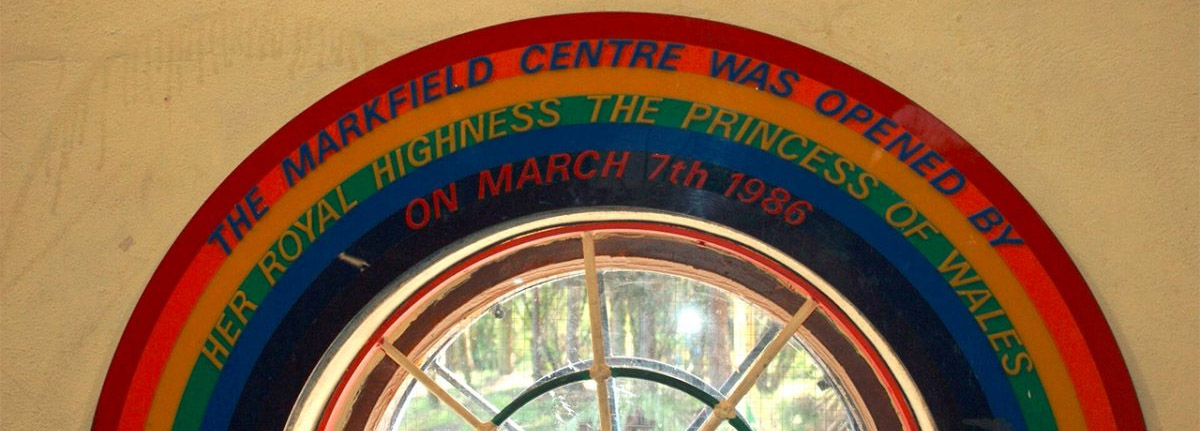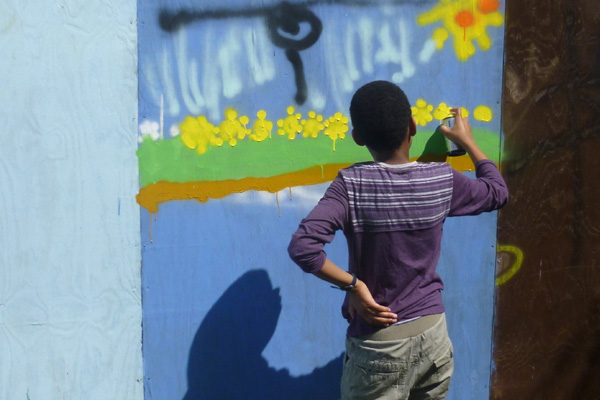About Markfield
Markfield was established in 1979 by parents of disabled children, whose vision was to create an inclusive place for disabled and non-disabled children to play. Markfield became a charity and limited company in 1983. A Victorian pump house in Tottenham was refurbished to create a unique community centre, opened by Diana Princess of Wales in 1986.

Our Purpose
Our Services
We run inclusive after school clubs and holiday playschemes where disabled and non-disabled children play together. Markfield’s highly trained staff are experienced in including children with a wide range of disabilities. We have youth clubs in the afternoon and evening with music, art, sport, films, where young people can socialise, relax and choose activities they enjoy. Our daytime and evening social clubs for adults with learning disabilities, autism or Aspergers Syndrome include dance, art, trips and discussion groups.
We have a wide range of family support services running at Markfield and outreach at other local venues. Our services aim to empower families to advocate for their rights, access services and participate in decision making. We focus on ways families can build supportive networks and get involved in the local community. We offer face to face and telephone advice, an information hub, free parent group coffee mornings and a monthly family club. We also community drop in sessions for all local families such as our Saturday Open Access adventure play and Under 5’s stay and play.
The word ‘disabled’ and what it means to Markfield
Lots of us have physical, sensory or learning impairments; need support to carry out day to day activities; have long term health or mental health conditions or emotional and behavioural needs. These things do not have to stop us living full lives.
Since the 1980s disabled people have used a different way of thinking about disability called the Social Model of disability. This says it is society that ‘disables’ people. All the physical and economic barriers in the world, inflexibility in meeting our needs and negative attitudes are what stops us leading full lives.
“I was blamed for being naughty. I got in trouble at school and excluded. I didn’t get diagnosed ‘til too late. People don’t understand that a disability like ADHD, which is invisible, can change how you behave.”

